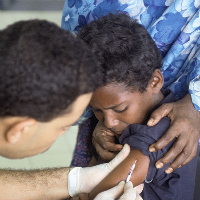Most people look back upon the 20th century as the deadliest in human history, with scholarly estimates suggesting that close to 200 million people died in all the wars, revolutions, genocides and totalitarian purges of those bloody decades. As a result, we regard the entire century as the age of total war, even though we have not experienced great-power war since 1945. Even more telling, state-based war almost completely disappeared as the century drew to a close, leaving us with primarily civil strife, failed states, and the transnational bad actors they both spawn.
But instead of celebrating the peaking and subsequent eradication of state-based war across the 20th century, many insist that humanity is now living in the most dangerous era of its history, rather than its most peaceful. Moreover, because of our tendency to view history in terms of killing and death, we remain stubbornly blind to our own collective progress -- namely, the preservation and extension of life.
As an example, take just one disease, smallpox, which killed half as many more people -- 300 million -- in the 20th century than all the organized violence. In light of the absolute numbers, one might be tempted to dub the century the most disease-filled in history, or "the century of smallpox." But just like great-power war was eradicated in the 20th century, so, too, was smallpox, through vaccines. As for just how many lives have been saved by eradicating smallpox and making vaccines against other diseases more widely available, a solid case can be made for roughly a quarter-billion in the second half of the 20th century.

